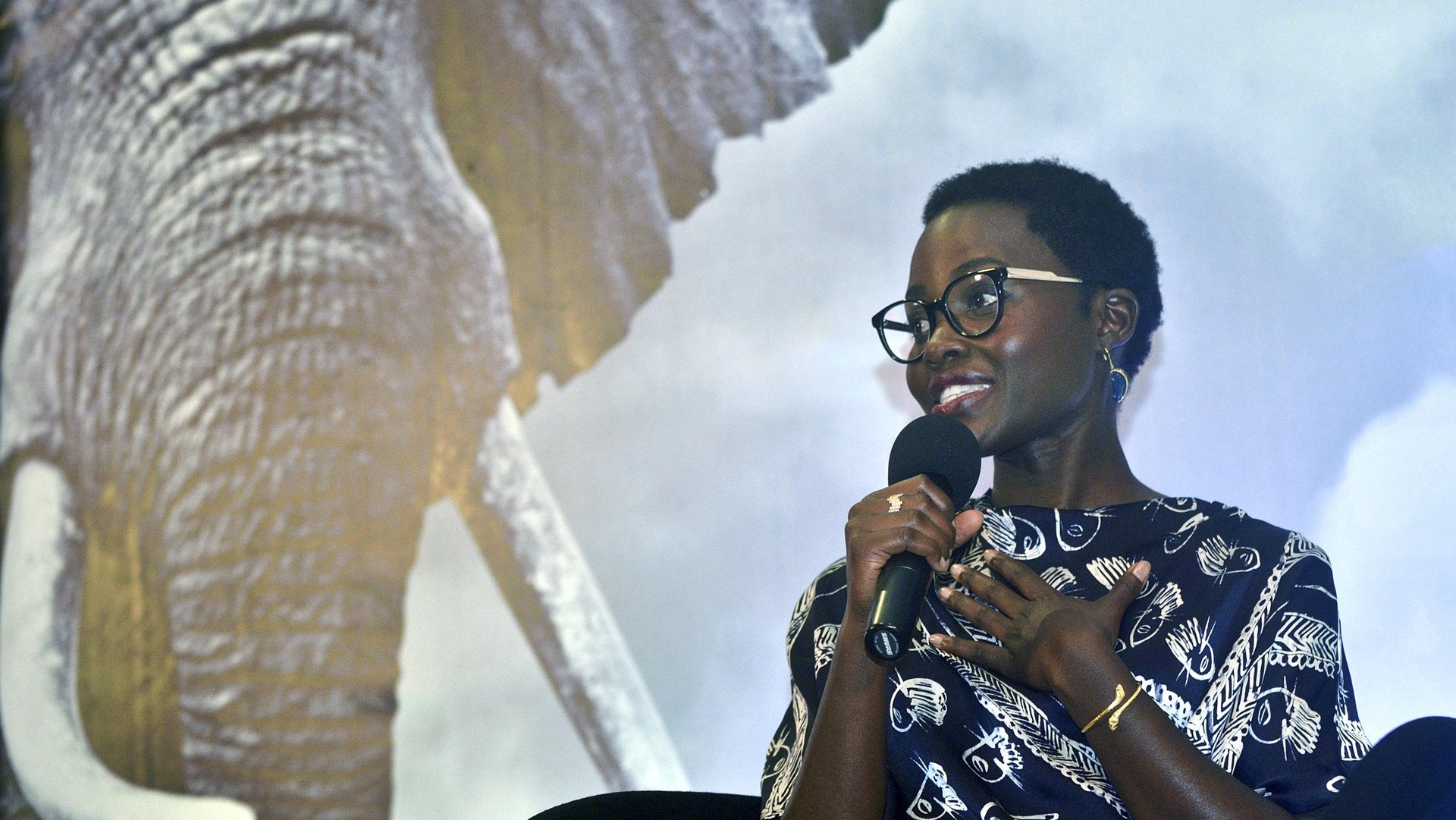Lupita Nyong’o is using her international stardom to save elephants in Kenya
Kenyan actress Lupita Nyong’o came home this week for the first time since winning an Oscar in 2014 for her role in “12 Years a Slave.”–the first African to ever win the coveted award.


Kenyan actress Lupita Nyong’o came home this week for the first time since winning an Oscar in 2014 for her role in “12 Years a Slave.”–the first African to ever win the coveted award.
At her public appearances, the media gushed over her “elegant” kitenge wrap and her ”afro, deliberately tousled, not too neat, not too rough.” #LupitaHomecoming trended.
But Lupita is not here just to look pretty and lap up the endless praise. Her warmly-received homecoming has been bolstered by her announcement that she would use her star power to fight elephant poaching, joining conservation organization WildAid as their new Global Elephant Ambassador.
“Elephants are one of our big five. We have their image on our money. I know this is something that is great source of pride for Kenya. This is global heritage, but it’s in our care,” she told BBC in a television interview.
The tusks are “a very small part of an elephant to lose the entire animal form” she said.
Kenya outlawed poaching more than 25 years ago, but a surging appetite for ivory in China has bolstered the trade–Save the Elephants, a partner of Wild Aid, reported in December that the price of raw ivory tusks has tripled in just four years. Leaders, including president Uhuru Kenyatta, periodically set aflame tons of ivory seized from poachers, inviting members of the press along for the show, but it’s unclear how much substance is behind such media events.
To kick off her new gig, Nyong’o embarked on her own media campaign, donning safari attire and visiting Amboseli National Park–known for its iconic view of elephants backdropped against Tanzania’s Mt. Kilimanjaro–and the perennial tourist favorite, David Sheldrick Wildlife Trust, a home for orphaned elephants on the outskirts of Nairobi.
The Hollywood star is fighting an uphill battle. There’s a plenty of doubt swirling about the government’s commitment to fighting poaching, most recently stoked by a photograph of Kenyatta with US secretary of state John Kerry in May, the two framed by two gigantic elephant tusks on display in State House.
Prominent political commentator and cartoonist Patrick Gathara on Tuesday re-upped his post from March about the government’s anti-poaching PR campaign in which he questioned its substance.
“The Kenya Wildlife Service claims the country has lost 466 elephants in the last two years. But in an opinion piece for the Guardian last year, conservationist Dr Paula Kahumbu said nobody in Kenya believed the KWS numbers. Her own estimate of the number killed in just the first five months of last year was ten times the official figure. A 2014 census of elephants and other large mammals in the Tsavo-Mkomazi ecosystem, which straddles the Kenya-Tanzania border, showed that the population had declined by 12.5% or over 1,500 animals.
As part of the events to raise awareness there was a $100-a-plate (10,000 Kenyan shillings) charity dinner for conservation with Nyong’o at the Kempinski Hotel which garnered awed coverage here. It also sparked off a little snark from locals bemused by the cost of the meal in a country where the average monthly wage in Kenya is around $75.
Nyong’o, a celebrity who carefully managed the optics of this visit, from formal media coverage to her Instagram snaps, is unlikely to say anything more incendiary than today’s disclosure that she doesn’t know how to cook the Kenyan dietary staple, ugali. She certainly isn’t going to take on accusations of government complicity. But without it, it’s unclear how much good her celebrity power can do.